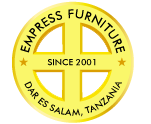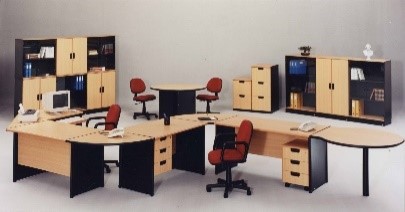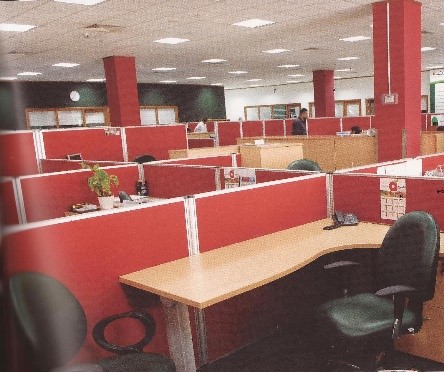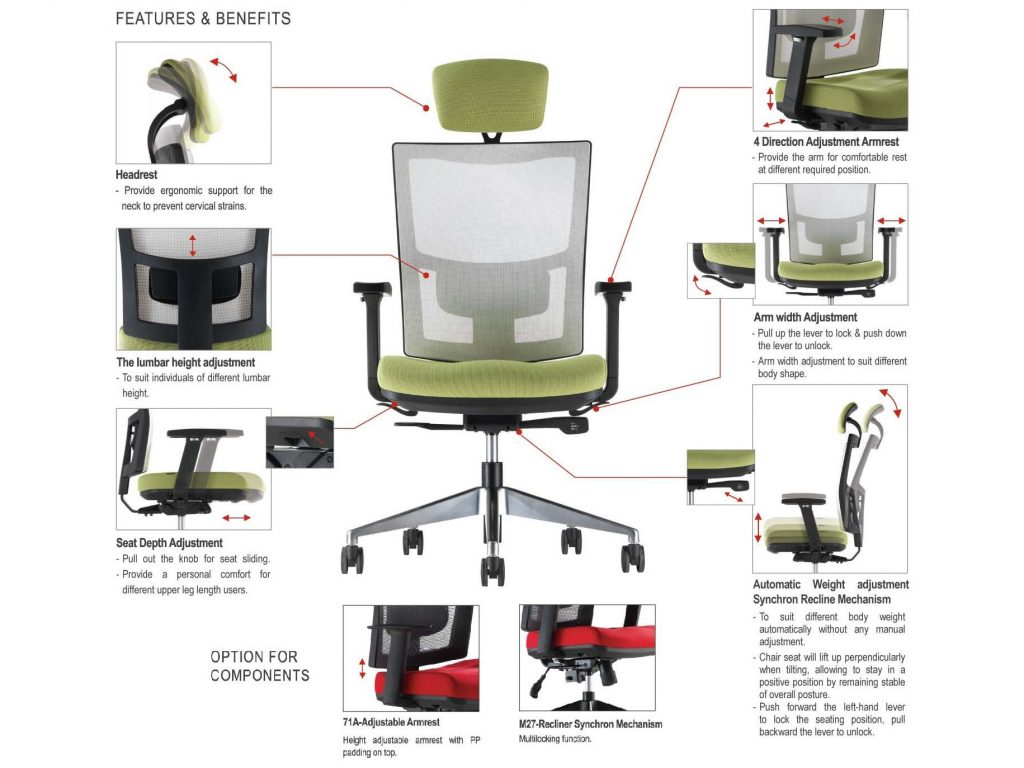We have told you how to buy long lasting furniture, but what can you do to help? We would like to share some tips and tricks to help you maintain your furniture to give it a longer life. We believe knowledge is power and in the importance of economic and environmental sustainability, we are sharing some useful guidelines.
Desking Care & Maintenance
Desking at high point had some key raw materials, such as MFC (melamine faced chipboard), MDF (medium density fiberboard), metal, veneer, and glass. Thus it, proper care and maintenance needed for office equipment can last a long time.
Here are some tips on how to store and care for the table to remain durable for all material products.
- When moving the table, it is recommended to be lift up and not dragging or pushing.
- Do not sit on top table, because the table is already designed for a specific load.
- Avoid storing heavy loads on the shelf cabinets and glass shelves
- Avoid the use of certain chemicals that are not recommended for cleaning the surface of the office equipment such as kerosene, mercury liquid, etc.
- Avoid using a rough texture to the surface cleaning.
- Keep furniture out of direct sunlight. When furniture is exposed to the sun for long periods of time It’s possible for the furniture to fade and age prematurely. If possible try to avoid extreme changes in temperature
- You can also use a professional cleaning service to take care of furnishing your office equipment.
(particle board that has been laminated by Melamine Paper)
All products MFC can be easily cleaned with a damp cloth with a little mild soap or detergent and immediately cleaned with a dry cloth. Do not use abrasive powders and scouring pads to clean the stains. In a state of extreme, alcoholic products can be used, but it must be followed with a damp cloth soaked in water to make sure no alcohol residue attached on the surface. If there are deposits left by the glass stains and ink, immediately wipe with a damp cloth or glass cleaner on the spot, if left to dry surfaces are difficult for cleaned. Avoid products of water droplets on the surface of water or sediment long enough.
For everyday cleaning, wipe the surface with a damp (not wet) cloth or sponge. It is important to wipe in the direction of the wood grain. Wipe dry with a clean, lint free cotton cloth. Avoid wax based furniture polish cleaners. These products contain wax and silicone products that will build up on the surface. Never use abrasive powders of scouring pads to clean stubborn marks. In extreme circumstances a mild alcohol product can be used, however this must be followed by a damp cloth soaked in water ensuring no alcohol residue is present afterwards. This process must be followed by a thorough drying of the unit with a lint free buffing cloth.
Avoid piling heavy items on your glass table. The transparency of glass makes it easy to see dust, fingerprints and streaks. A regular maintenance schedule will help to keep your glass table clean and sparkling. Use window cleaner or a mixture of water and vinegar to get a streak-free glass coffee table. Avoid placing accent pieces that have sharp edges or rough bases directly on the glass top. If at all possible, keep your glass table away from high-traffic paths. Someone in a hurry could knock into your glass table and cause serious damage. To clean the glass surface by using detergent and a soft cloth or spoons and immediately cleaned with a dry cloth so that the glass does not cause scars.
Metal materials in our products coated with powder coating to help protect the metal from the rusty metal. However, every effort should be made to protect this layer. Regular maintenance of the dust should be conducted to help keep powder coating free of dust. To clean, use a damp soft cloth so as not to damage or cause scratches in the paint.
Never use all-purpose cleaning sprays on your wood furniture as some contain bleach, alcohol or other chemicals that can stain or strip wood. Avoid moving hardwood furniture, it is very heavy! To avoid rings and heat damage, always use coasters when setting glasses or mugs on wood tables, and never place hot food directly on them without the protection. Incorporate decorative placemats or a tablecloth to protect your dining room table from food and drink spills. Quickly dry any spillage, as wet wood may attract termites and cockroaches. Be sure to follow up any spills with a rinse from a damp cloth containing just water, then immediately wipe with a soft dry cloth.
Sunlight, heat and other environmental factors can wreak havoc on your fine wood. Don’t place valuable furniture in front of uncovered windows, as the light and heat can damage and fade the wood. Sometimes older pieces of furniture develops an unpleasant smell. If this happens, sprinkle the surface with baking soda.
Alternatively, leave the furniture in an outdoor shaded area on a warm, dry day to make the smell go away.
Partition Care & Maintenance
Materials we used the partition order is die cast aluminum with powder coating and material for the lid using fabric. To clean the fabric material of dust do not use an abrasive brush, because will damage the fabric on the partition. For aluminum frame, always routine cleaning with a damp cloth then dry with a clean dry cloth and gently. Its use should not propped a table or chair, because it would lead to a skewed partition. Treatment frequently will maintain the quality of the partition.
In order to maintain the fabric over the five year guarantee period, the fabric must be vacuumed on a regular basis. Regular dusting and vacuuming removes any loose particles and stops dirt from entering the weave and breaking down the fibres. When necessary, the upholstery should be gently wiped with a clean cloth, dampened with warm soapy water. Immediately dry with a clean and dry non-abrasive cloth. Do not use neat, strong or abrasive cleaning fluids or detergents, as these may affect the colour and finish of the fabric. Upholstery can be professionally dry-cleaned if required.
Leather needs very little special care, but to get the most out of your investment, you should follow the guidelines below. Regular dusting should help keep the leather in perfect condition. When necessary, the upholstery should be gently wiped with a non-abrasive cloth, dampened with warm soapy water. Immediately dry with a clean and dry non-abrasive cloth. Always protect the product from direct sunlight, as this will otherwise accelerate the natural ongoing discolouration process. Dust should be removed by vacuuming and wiping with a slightly damp cloth, using a solution of warm water and mild soap. Do not use neat, strong or abrasive cleaning fluids or detergents, as these may affect the colour and finish of the hide. Avoid using any wax, cream or polish, as these will affect the feel of the leather.
These materials are fairly resistant to damage from dirt. Regular dusting should help keep the surfaces free from dirt and help stop any scratches occurring. Avoid contact with boiling water, high heat, lame such as cigarettes, and abrasives. Wash in warm soapy water and apply pressure where necessary, drying afterwards with a clean cloth. Do not use neat, strong or abrasive cleaning fluids or detergents, as these may affect the colour and finish of the surface.
Seating Care & Maintenance
Office chairs that are at the high point has some variants that are grouped on raw materials such as fabric, leather, plastic, and metal. There for each treatment type way different.
Take care not to clean any moving parts, including the spindle and mechanism as this may affect the chairs performance. In order to maintain the fabric over the five year guarantee period, the fabric must be vacuumed on a regular basis. Regular dusting and vacuuming removes any loose particles and stops dirt from entering the weave and breaking down the fibres. When necessary, the upholstery should be gently wiped with a clean cloth, dampened with warm soapy water. Immediately dry with a clean and dry non-abrasive cloth. Do not use neat, strong or abrasive cleaning fluids or detergents, as these may affect the colour and finish of the fabric. Upholstery can be professionally dry-cleaned if required.
Leather needs very little special care, but to get the most out of your investment, you should follow the guidelines below. Regular dusting should help keep the leather in perfect condition. When necessary, the upholstery should be gently wiped with a non-abrasive cloth, dampened with warm soapy water. Immediately dry with a clean and dry non-abrasive cloth. Always protect the product from direct sunlight, as this will otherwise accelerate the natural ongoing discolouration process. Dust should be removed by vacuuming and wiping with a slightly damp cloth, using a solution of warm water and mild soap. Do not use neat, strong or abrasive cleaning fluids or detergents, as these may affect the colour and finish of the hide. Avoid using any wax, cream or polish, as these will affect the feel of the leather.
These materials are fairly resistant to damage from dirt. Regular dusting should help keep the surfaces free from dirt and help stop any scratches occurring. Avoid contact with boiling water, high heat, lame such as cigarettes, and abrasives. Wash in warm soapy water and apply pressure where necessary, drying afterwards with a clean cloth. Do not use neat, strong or abrasive cleaning fluids or detergents, as these may affect the colour and finish of the surface.
Metal is fairly resistant to damage from dirt. Regular dusting should help keep the surface free from dirt and help stop scratching. When necessary, surfaces should be gently wiped with a non-abrasive cloth, dampened with warm soapy water.
Any parts that become loose should immediately be tightened, before it comes out all together, to avoid further damage to the furniture. Any parts / screws/ fittings that come out, should be saved and not thrown away. As your chairs have genuine warranties, please call us if you find it is not working as it should. We believe in sustainability and want your furniture to last longer.




